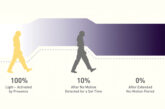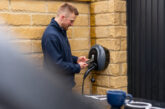
In this regular column, Dr. Tom Brookes answers your questions related to fire safety. In this month’s edition he looks at the qualification requirements to enable entry on to industry schemes.
Q. BAFE has changed the criteria for the competence of engineers for fire alarm engineers and technicians. Does that mean I must undertake the BAFE FIREQUAL qualification to be part of the SP 203-1 scheme?
There’s been quite a bit of confusion around this lately, so hopefully we can clear some of it up.
BAFE obviously has its own qualification in the form of FIREQUAL, and many individuals are under the assumption that they must undertake this qualification to be part of the overall BAFE scheme. This isn’t the case, as it would potentially create a monopoly.
So, let’s take a look at what it says in plain English:
BAFE SP203 Required Qualifications
SP203-1 Scheme V8 started on the 1st of November 2023, which includes the requirement for engineers/technicians that the organisation employs to be competent individuals and demonstrate that all are employed.
Firstly, if you don’t have an actual fire alarm qualification in a court of law, how do you prove you’re competent? In my view, this means that everyone working on fire alarm systems must be qualified in fire alarm systems (sorry, qualified electricians, you must also have a dedicated regulated fire alarm-specific qualification on top of your other certificates).
It also states that all people must have the ability to demonstrate core knowledge of fire detection and fire alarm system design, installation, commissioning and maintenance work (including BS 7671 iET Wiring regulations) and the ability to carry out safe isolation.
Lead Persons
BAFE SP 2303-1 V8 now states that every company must have a named and documented lead Designer, lead installer, lead Commissioner and lead Maintenance engineer. These lead roles in a smaller company could all be the same person.
I personally would have liked to have seen the Commissioner as a different person than the installer, but that’s the route that has been taken on this occasion.
The requirement for an individual to prove “they are competent” is the bit that seems open to interpretation. The scheme states that the lead roles must be filled by individuals with regulated minimum level 3 qualifications in BS 5839-1 that cover design, installation, commissioning, and maintenance.
So, what are your options?
Awarding body EAL offers a range of fire alarm qualifications that meet the requirements of the BAFE scheme. Zzeus Training is a dedicated fire alarm training centre and covers all the requirements needed.
We were the first to offer the EAL qualifications, however some good news has arrived recently with the announcement that NICEIC has updated its training offering and is now running the EAL qualifications also.
In my opinion this will be the ‘go-to’ fire alarm qualification to meet the requirements for readers of this esteemed publication, and also give ECS card holders either a stand-alone Fire Operative Card or, if you’re a Gold Card electrician, you can have the fire alarm qualification put on the back of your card.
Experienced workers, if you have a minimum of five years’ experience, we can put you through the EAL level 3 NVQ at Zzeus Training.
The course is portfolio-based, with an audit assessment, and looks at the experience side of fire system engineers. A pass in the NVQ would cover all the BAFE roles, plus enable the engineer to gain a fire gold card at the same time.
You can, of course, go down the FIREQUAL route as that also meets the requirements of the scheme, so it’s good to know that individuals have plenty of options available to them.
Do you have a question you’d like answered? Email your queries to: Tom@Zzeus.org.uk
Get more details about Zzeus Training and the range of course on offer here
Read more ‘Dr. Zzeus Q&A’ articles here








